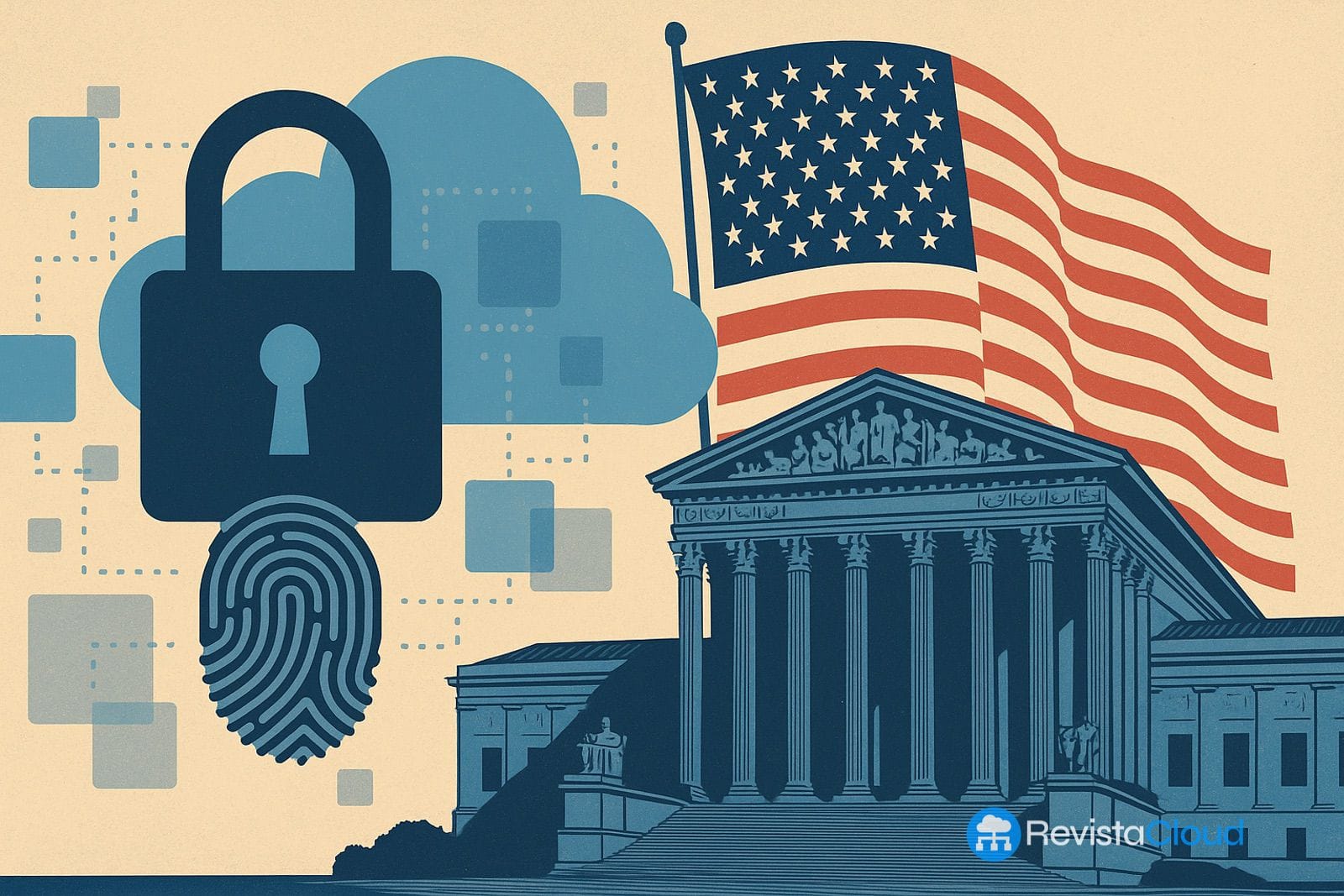The legal principle known as the “third-party doctrine” allows the U.S. government to access your personal data held by third parties without a warrant. A key case before the Supreme Court could change everything.
In 2025, when millions of citizens depend on digital services for their daily lives, the question of actual ownership of data stored in the cloud becomes critically relevant. Are your emails, search histories, financial records, or medical files really yours when hosted on services like Google, Microsoft, Oracle, Coinbase, or Amazon?
For the U.S. government, the answer—so far—has been no. This is due to the so-called third-party doctrine, a legal interpretation from the 1970s stating that a citizen loses their reasonable expectation of privacy when they voluntarily provide information to a third party. In other words, if your data is on a company’s servers, it is considered outside the scope of constitutional protection under the Fourth Amendment, which safeguards against unreasonable searches and seizures.
The Harper vs. O’Donnell Case
Citizen James Harper, a client of the cryptocurrency exchange platform Coinbase, faced the IRS after receiving a letter accusing him of failing to report cryptocurrency income. The real shock for Harper was discovering that the IRS had obtained—without a warrant—his transaction records, wallet addresses, and public keys directly from Coinbase. This was part of a massive operation initiated in 2016, where the agency sought information from over 14,000 users.
Harper took the case to court, claiming that his constitutional rights had been violated. However, lower courts dismissed his lawsuit, arguing that the data in question belonged to Coinbase and was subject to the third-party doctrine.
An Outdated Precedent
This doctrine, based on Supreme Court rulings from the 1970s, may have made sense in an analog world. But in today’s digital age, where individuals interact with dozens of platforms each day, providing data to third parties is more of a functional necessity than a “voluntary waiver” of privacy.
Harper’s legal team argues that there should be a reasonable expectation of privacy over digitally stored financial records, especially since the Supreme Court itself acknowledged the need for a warrant to access mobile location histories in the case Carpenter vs. United States (2018).
Risks to Digital Privacy
Organizations like the Cato Institute and the New Civil Liberties Alliance have filed briefs with the Supreme Court supporting Harper’s cause. Both organizations warn about the dangers of leaving this legal loophole intact:
“The government has used the third-party doctrine to bypass the requirement for warrants and obtain the most sensitive records of Americans, such as emails, search histories, financial data, and location,” stated the Cato Institute.
From the perspective of privacy advocates, modern digital records are equivalent to the “papers and effects” that the Fourth Amendment explicitly protects against governmental intrusion.
What’s at Stake?
If the Supreme Court decides to review the third-party doctrine, we could be looking at a historic change in digital privacy jurisprudence in the United States. This would have direct implications not only for cryptocurrency users but also for anyone using cloud services, storing data in applications, or entrusting their medical, financial, or personal information to tech platforms.
In a context where data sovereignty and digital regulation are at the center of global debate—and where artificial intelligence and advanced analytics amplify surveillance risks—the Supreme Court’s ruling could mark a turning point in the balance between security, oversight, and individual freedoms.
Source: Based on an original article from HPCwire.

